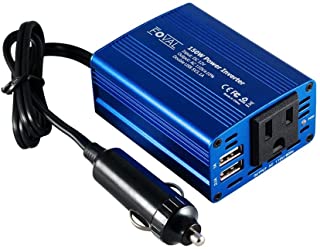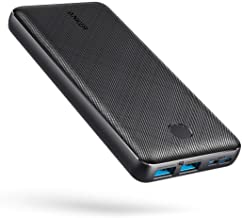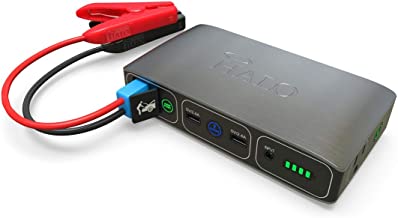Table of Contents
cardwelling
This wiki is aimed primarily at vandwellers but much of the information is usable by cardwellers. Below are some topics that may differ between car- and van-dwelling
Note: if you are new to cardwelling or doing it out of necessity, see this article on involuntary vehicle-dwelling.
benefits
- cars are more Stealth Camping|stealthy; they don't stick out like white vans or RVs
- cars are typically more economical to buy, insure, and drive
- cars are shorter and can fit in places like parking garages and drive-throughs that might not be accessible to taller vehicles
space
Cargo cans and similar will usually have much more “living space” inside than cars; after all they were designed to haul cargo.
Car-dwellers will probably not be able to use the typical vandweller bucket toilet inside the car.
power
Electrical power can be extremely challenging for cardwellers. Power generation and storage components as found in campervans tend to be physically too large/heavy, overpowered, or otherwise impractical for car used. There are no solutions that are simultaneously easy, inexpensive, and size-appropriate for cars.
basic principles
- DO use the power of the alternator whenever you are using the vehicle. Even on small cars the alternator has the capacity to make enough power to put typical solar setups to shame.
- on the other hand, DON'T idle the vehicle just to spin the alternator.
- DO leverage shore power (wall power) whenever you can appropriately access it: restaurants, libraries, coffee shops, work, school, etc.
harnessing alternator power
cigarette lighter
The most common way to access alternator power is through the cigarette lighter, sometimes called an accessory power port.
Cigarette lighters outlets are typically fused at 10A, so it's safest to assume you will only be able to pull 120w total from them without popping a fuse. Pro tip: check the fuse sizes for your car and carry extras, especially fuses for the ciggy port.
You can run 12v (DC) devices that have a male cigarette connector from the outlet.
 You can also run a small inverter off the port. Caveats:
You can also run a small inverter off the port. Caveats:
- inverters have inefficiencies, up to about 20%, which will increase the load over what is indicated on your AC device's sticker. For these reasons I wouldn't try to run anything with a sticker wattage of more than ~100w.
- small inverters are typically modified sine wave, which isn't approprate for all types of loads. Small pure sine wave inverters do exist (example: Bestek 300w PSW, but take care not to exceed the port's capacity.
- inverters with cords that plug into the port put less mechanical strain on the port than units that plug directly in. If you own an all-in-one plugin you may want to use an extension/splitter to minimize stress on the ciggy port. If the port is your only source of power you want to treat it gently.
starter battery
Larger inverter loads can be run if one bypasses the cigarette lighter and connects to the battery directly with alligator clips or by adding wiring.
Many inverters in the 300w+ range come with alligator clips to connect directly to the starter battery. Example: Aims Aims 300w PSW and Bestek 500 MSW models. Their usefulness is somewhat limited because you can only use them with the hood up and car idling.
Running wire (with appropriate fuse) from the engine compartment to the passenger compartment will allow you to run larger loads while driving. Example: cooking with excess power while on a road trip or long commute.
USB ports
Newer vehicles may also have USB ports for charging small devices like phones and tablets.
solar power
Solar power has substantial benefits including:
- power when the vehicle is off
- silence
- ability to charge starter battery
but takes physical space that is not always available in cars. The panels themselves are rather large and require wiring to connect them wherever the power is to be routed.
shore power
having shore power is the vandweller equivalent of winning the lottery - secessus
Shore power is wall power, places where you can plug in. If you are “driveway surfing” or renting a campsite with a power pedestal you may have the option of running an outdoor-rated extension cord to your car.
power storage
Storing excess power may be the most challenging aspect; the starter battery holds power but that should be reserved for starting the vehicle.
solar generators
Solar generators are a simple although relatively-expensive solution to power storage in cars.
They can be charged from the cigarette outlet or from solar panels, or from wall power while you are at work or in a place where outlet power is available. It may be counterintuitive, but depending on the device's specifications it may actually charge faster using a small inverter to run the wall charger than using the cigarette outlet cord.1)
usb power bricks
 People with limited power needs (charge phone, run personal fan) may do fine with a USB power brick (example: Anker 20,000mAh portable charger. Charge from wall power when available or from USB adapter while the car is running.
People with limited power needs (charge phone, run personal fan) may do fine with a USB power brick (example: Anker 20,000mAh portable charger. Charge from wall power when available or from USB adapter while the car is running.
Some units also have handwarmer functions which may be useful in cold weather.2)
Power ratings can be a bit confusing; the 20,000mAh unit above is more plainly understood as 20A @ 5v.3). While it may look like a marketing ploy, it is also a historical artifact from when lithium batteries were quite small and 150mAh was easier to parse than something like 0.0150Ah.
jump packs
Jump packs are USB power packs on steroids. They tend to have larger internal capacity and also the ability to produce 12v to help start dead car batteries. The unit shown here also has a ~60w inverter built in for light loads.
auxilliary batteries
Aux battery setups are typically used in larger power configurations like you might find in campervans.
Resources
- Video discussion:
- Living in a car by choice or necessity - rwitham


